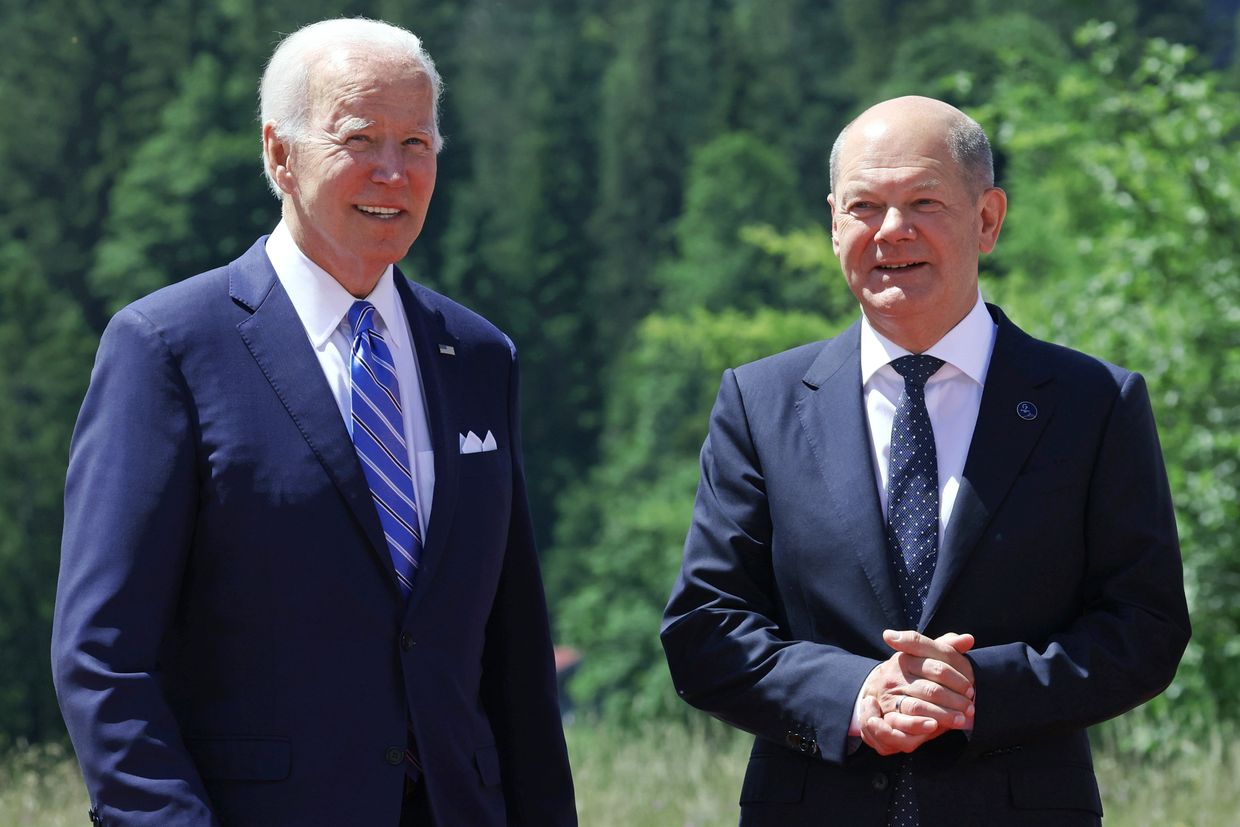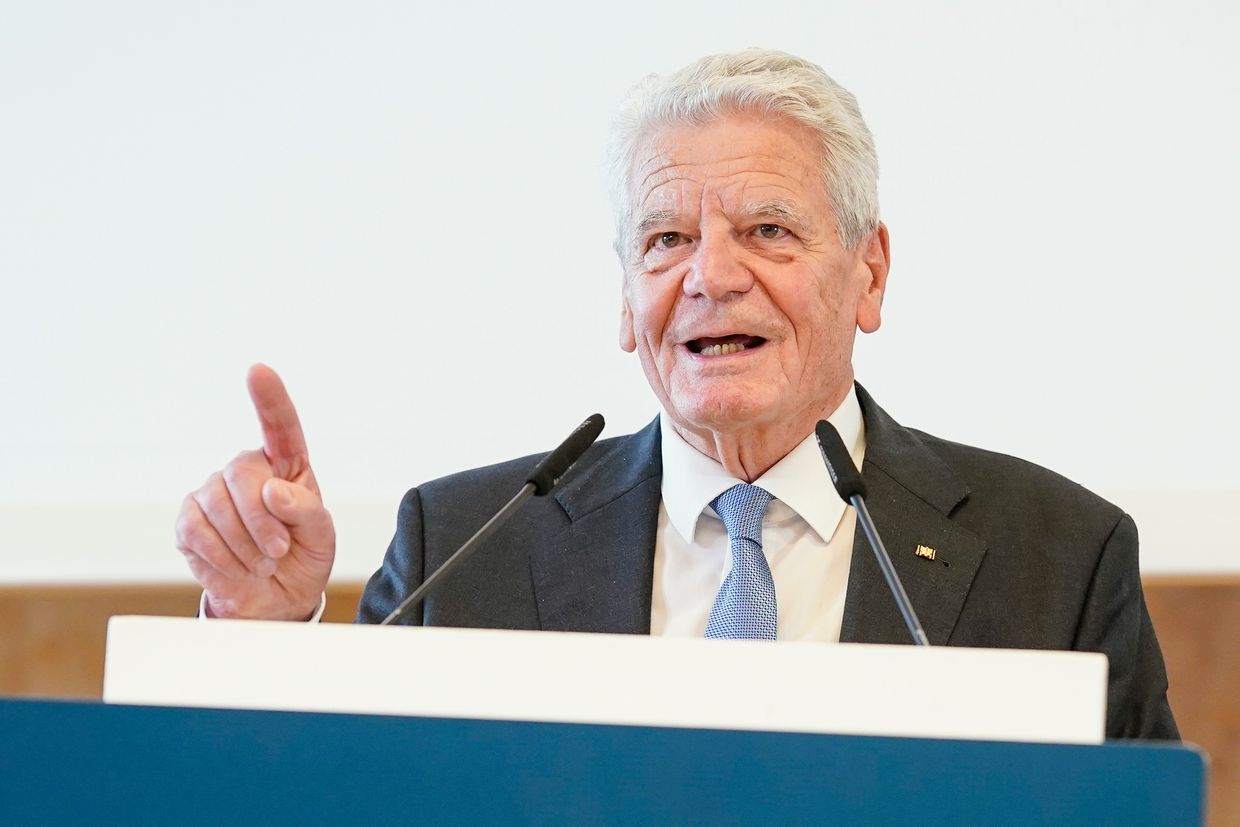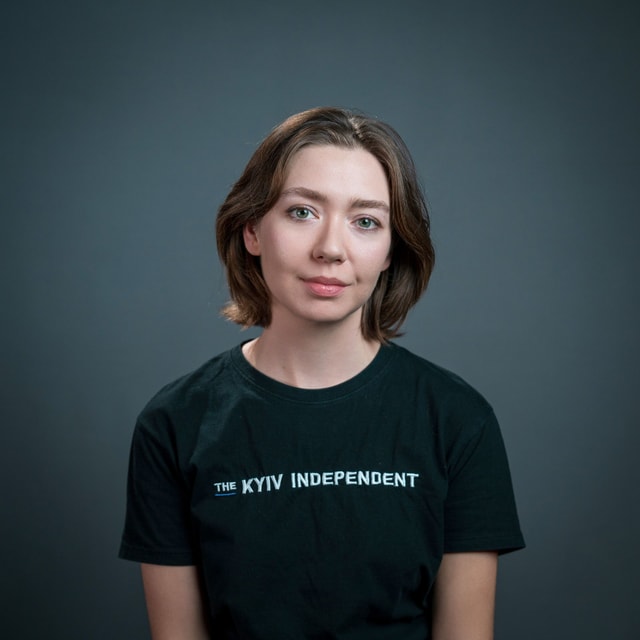Rise of Germany's AfD signals growing support for pro-Russian policies

One of Russia's top narratives is that it invaded Ukraine to "denazify" this multi-ethnic democracy led by a president with Jewish roots and holocaust survivors in his lineage.
In fact, Russia's public obsession with "fighting Nazis" masks how its closest relations among European political parties are with those on the far right. One of these parties is Alternative for Germany (AfD), which has been mired in scandal after recent reports of its affiliations with Neo-Nazis.
Since its founding in 2013, AfD has steadily grown from a fringe opposition party to "the largest pro-Russian far-right party in Europe," as Anton Shekhovtsov, an expert on far-right movements, would describe it.
The party's hold is especially strong in what used to be East Germany, but it has seats in the European Parliament, the Bundestag, and regional parliaments across the country.
German investigative outlet Correctiv on Jan. 10 reported that AfD party members attended a meeting in Potsdam in November 2023 with well-known neo-Nazis and talked about the practicalities of mass deportation of migrants, asylum seekers, and even Germans of foreign origin.
Correctiv's findings have sparked massive anti-AfD protests. About 300,000 people gathered in cities across the country on Jan. 20-21 and called for the party to be banned. More protests were organized on Jan. 27, Holocaust Remembrance Day, with 100,000 people gathering in Dusseldorf.
The party's national poll performance suffered little, declining from an all-time high of 23% to 21% after the scandal broke. In January 2022, for comparison, the party was polling at 11%.
Under Germany's ruling "Traffic Light" coalition, made up of the Social Democratic Party (SPD), the Free Democratic Party (FDP), and the Greens, Germany has become the second largest supplier of military aid to Ukraine in the world, after the U.S.
With the steady rise of the AfD, Germany's position as the locomotive of European support for Ukraine is being actively challenged by an increasingly popular, Russian-friendly group.

International Relations
Like other far-right populist and ultra-nationalist parties in Europe, AfD wanted a rapprochement with Russia long before the full-scale invasion began.
Co-leaders of the party Tino Chrupalla and Alice Weidel visited Russia in 2020 and 2021 respectively.
AfD MP Marcus Pretzell visited Russian-occupied Crimea, and another MP, Stefan Keuter, visited Russia as an election observer in 2018. Both Keuter and Gunnar Lindemann, a member of the Berlin city parliament for AfD, came to Russia again in 2020 for the vote on constitutional amendments proposed by Russian President Vladimir Putin, which allowed him to stay in power until 2036.
While other far-right parties in Europe distanced themselves from their ties with Russia after February 2022, some AfD figures continued to visit Russia.
Hans-Thomas Tillschneider, a regional parliament member for Saxony in the east, is known to have visited Russia at least three times, posting from Moscow on social media and speaking on Russian propaganda channel Russia Today, which is banned in Europe.
MP Petr Bystron even secretly traveled to Belarus for three days in November 2022, journalists from Correctiv and Lithuanian TV channel LRT discovered.
Another MP, Matthias Moosdorf, visited Saint Petersburg in May 2023. The same month, Chrupalla and party founder Alexander Gauland attended a reception at the Russian embassy on May 9, celebrating "Victory Day" in Russia, German broadcaster ZDF reported.
Chrupalla claimed he attended the reception because "dialogue should not be allowed to break down in times of crisis."
According to Correctiv reporter Marcus Bensmann, until February 2022, Germany saw Russia through a "clumsy understanding of the policy of détente from the Cold War era."
While this has since changed for most Germans, "there is a strong anti-Americanism and a desire for Russia on the political right" that still exists in Germany, Bensmann told the Kyiv Independent. "We see this in the AfD and the Wagenknecht party," a newly-established far-left party.
While opinion polls show that most Germans support Ukraine, "this is why the radical supporters of the AfD are in favor of the politicians' trips to Russia."
"We can only hope that this sentiment never gains a majority in Germany," Bensmann said.

Military Aid
Unsurprisingly, AfD argues for dialogue with Moscow and against sending weapons to Kyiv.
"If you want to stop a war, you have to negotiate," leading AfD MP Beatrix von Storch told DW in July 2023.
"You can fight until everyone is dead and then say that it is quite peaceful here – because everyone is dead. We think it is better to start peace talks," Storch claimed.
Chrupalla, meanwhile, greeted the news in December 2023 that Republicans in the U.S. Congress were blocking $61 billion in aid for Ukraine, saying that "Chancellor Olaf Scholz must also stop spending billions on the war in Ukraine."
Chrupalla has also spoken out against delivering German Taurus cruise missiles to Ukraine, as "cruise missiles can contribute to escalation."
While a few members of the party have spoken out in support of Ukraine, the vast majority of AfD has been against helping Ukraine win the war since the start of the full-scale invasion.
Germany is now the world's second-largest supplier of military aid to Ukraine after the U.S. This was not always the case. Berlin only approved sending heavy weapons on April 28, 2022, with 586 MPs voting in favor, 100 against, and seven abstentions.
Voting records show that only 4 AfD MPs voted in favor, while 66 of the 100 votes against came from AfD party members, as well as three of the seven abstentions.
Germany then approved supplying Leopard 2 main battle tanks to Ukraine in January 2023.
AfD party leader Weidel said weapons deliveries would be a "further escalation of the conflict" towards a "Third World War." Her words echoed that of the Russian embassy in Berlin, which declared that Berlin's decision was "extremely dangerous" and marked a "new level of confrontation."
In August 2023, a joint investigation between Russian investigative outlet The Insider and Der Spiegel revealed how an aide to an AfD MP lobbied for pro-Russian initiatives and triggered "a lawsuit against his own government aimed at halting or slowing German weapons transfers to Ukraine."
With the help of a suspected FSB operative, Vladimir Sergienko aimed to slow down the transfer of Leopard 2 main battle tanks to Ukraine.
Despite being born in Lviv and becoming naturalized as a German citizen in November 2022, "Sergienko has long been suspected by Western intelligence of peddling Russian influence in the heart of German democracy," The Insider said.

European Impact
The AfD will fight for more power in Germany's regional elections and the European Parliament elections in 2024.
Brandenburg, Thuringia, and Saxony, three states in former East Germany, are expected to see big AfD wins, despite the fact that in the latter two, AfD has been officially classified as a far-right extremist group by the security services.
Research from October 2022 showed that Germans in the former Soviet-occupied East are more likely to believe Russian propaganda than in the former West. AfD voters are more likely than any other voting group to believe pro-Russian propaganda.
However, "Germany's federal system implies that the success of the AfD in regional elections does not directly translate into a substantial influence on the country's foreign policy," Andriy Korniychuk, a policy analyst at the Brussels-based Foundation for European Progressive Studies, told the Kyiv Independent.
"The AfD's ability to shape foreign policy depends on its capacity to form or significantly influence the governing coalition, which many experts assess as unlikely in the short-term perspective."
In an interview with the Financial Times on Jan. 21, Weidel reportedly "acknowledged that the AfD would not come to power in Berlin before 2029" but believed that AfD reaching power in a coalition government was eventually "inevitable."
However, the upcoming elections for the European Parliament in June "could introduce a new layer of complexity," Korniychuk said.
A poll published on Jan. 24 showed the far-right Identity and Democracy bloc, of which AfD is a part, could gain 40 seats, potentially becoming the third-largest grouping in the European Parliament with as many as 98 seats in the soon-to-be 720-seat parliament.
The European Parliament shares power with the European Council, comprising representatives from member states, so gains for AfD-affiliated parties will not "automatically translate into a sweeping impact on the entire European political and decision-making landscape," Korniychuk said.
However, the emergence of radical opposition to supporting Ukraine could pose a potential obstacle to the swift implementation of policies, which can significantly influence the situation on the front line.
"This is why it is so crucial, and we see so much mobilization to adopt the ($55 billion) Ukraine Facility as soon as possible, before the next European elections," Korniychuk said, as "once set in motion, processes within the EU require substantial effort and time to alter."
The Ukraine Facility represents a "safety belt or airbag against a potential far-right rise on the European level and what it can bring."

Note from the author:
Hi, this is Elsa Court, the author of this article. The idea for this story was actually suggested by our community members, who wanted to know more about what the rise of AfD means for Ukraine. If you would like to provide input into the topics we cover, consider becoming a member of the Kyiv Independent community and gain access to our member-only community chat on Discord.












